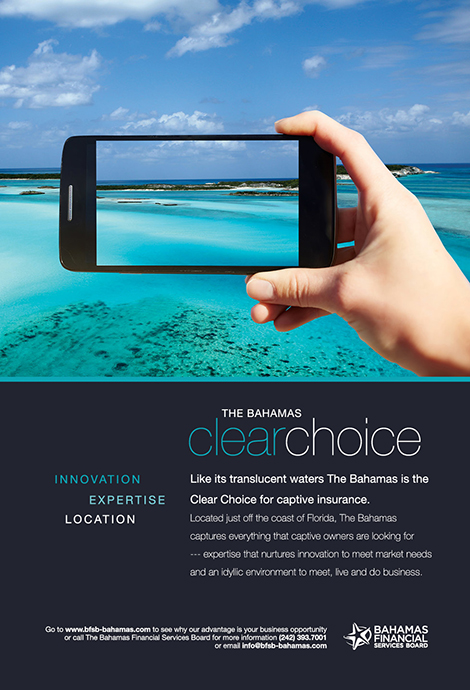Under the direction of new insurance commissioner, Marlene Caride, New Jersey is trusting that modernisation can bring growth and success to its captive insurance market
New Jersey is still a domicile very much in its infancy, having only enacted its captive legislation in May 2011 but, following the arrival of the state’s new Department of Banking and Insurance (DOBI) commissioner Marlene Caride, the state is hoping to modernise and grow its captive market.
The state’s captive legislation was signed into law by Governor Chris Christie in February 2011 and became effective in May of that year.
New Jersey licensed its first captive, Prudential New Jersey Captive Insurance Company, a pure captive of Prudential Insurance Company of America, two months later. A further milestone came the following year, with the approval of QualCare Captive Insurance Company, the state’s first sponsored cell captive.
New Jersey’s most recent formation was approved on 1 February 2018 as large US-retail company Burlington Stores launched its captive insurer Florence Insurance Company (FIC). The formation was hailed as a success by Caride.
The Commissioner said: “When New Jersey companies who employ thousands of workers in the state set up their captives in New Jersey, we believe that is a positive transaction for everyone.”
Slow and steady wins the race
The licensing of FIC brought the total number of captive formations or re-domestications in the state to 25 since the inception of the captive law in 2011, with $321 million in gross written premium at year-end 2017, and Sheila Small, founding member and president of the Captive Insurance Group of New Jersey (CIGNJ), a not for profit trade association that supports the captive industry in New Jersey, suggests that this “slow and steady” growth is a strategic by DOBI.
She says: “They want to make sure they don’t grow leaps and bounds and then have solvency issues later. They want to make sure the captives they licence are captives that will be there for the long run.”
“Due to the change of administration they have been a little bit slow in modernising their captive legislation, however, with DOBI’s new assistant insurance commissioner of the Office of Captive Insurance, Bill White, I think we are going to see things change pretty rapidly.”
However, that is not to say that the state will forget about its ‘slow and steady’ mantra.
Small explains: “It is still going to be slow but steady, because their position is to not grow too fast. They want to make sure that the captives that they licence are captives for good reason and will be a key strategic element of the company that looks to set up the captive and their risk management profile.”
There is an expectation in New Jersey that this modernisation will directly lead to a growth in the captive market because the state has characteristics which potential captive owners may find attractive.
Traits of growth
Caride describes the state as “an ideal location for a captive to locate” due to its “location, diverse industry, and business mix” as well as its “ability to attract and grow markets”.Small adds: “New Jersey has an excellent location, between New York and Pennsylvania. Pennsylvania does not have a captive legislation and New York does have legislation for captives but it is a little more difficult.”
“For captives there is also the concern of having annual board meetings, but getting to New Jersey is very easy. Newark is a major airport and the New York and Philadelphia airports are not too far away.”
“We have quite a few colleges in the area which should make it much easier for captive managers in the state to find suitable talent.”
She continues: “We also have an incredible infrastructure of captive managers accountants, investment managers, and legal people.”
Peter Gerken, senior vice president of Steel City Re, a corporate reputation measurement, risk management, and risk transfer firm domiciled in New Jersey highlighted the experience with the state’s regulators as another advantage.
He says: “New Jersey is a captive-friendly state where the compliance value of Steel City Re services are appreciated and accepted by regulators. New Jersey’s principal focus on the acceptability of reputation risk in captives, means the state has an opportunity to really stand out amongst domiciles as more captives and their parents seek to finance/insure reputation risk.”
Small also recognises the “good relationship” between the captive industry and DOBI.
“Very often we have DOBI come and speak at our meetings. For example Commissioner Caride introduced herself at the most recent meeting. She talked about what her plans are and told attendees that she will give her full support to the captive initiative.”
New commissioner
The new commissioner has been very clear in her stance on captives and on her belief that the New Jersey market is well positioned to grow.
Caride says: “New Jersey’s current market share of the domestic captive business is small, but we intend to build on the foundation that presently exists.”
“We understand that there is a tremendous potential for growth and we anticipate being a more active player in this market. The department is focused on how best New Jersey can grow the market and build upon the businesses that have already chosen to locate in our state.”
“The department is committed to developing this market. We are working to ensure we have the resources available to grow our captives market.”
One of the commissioner’s first moves to ensure such resources are available was the appointment of White as assistant insurance commissioner of the Office of Captive Insurance. An insurance industry veteran with more than 35 years in executive positions, White was a trustee of the CIGNJ giving him experience both with the department and the industry.
Small highlights the appointment of White as a “clear sign” that the Commissioner Caride was a supporter of New Jersey’s captive insurance industry.
She suggests that there was a time frame of a few years between the former assistant commissioner of the Office of Captive Insurance, John Talley, moving to Missouri, and White’s arrival in the role, where New Jersey’s market was standing still.
She adds: “The fact that the new commissioner immediately hired White is clearly a sign that she will be good for the New Jersey captive industry. It is a clear indication that she is not sitting back and seeing what is going on, she has said let’s move ahead and take action immediately.”
“I think the new assistant commissioner is going to spread his wings wider than some of the previous ones have because our domicile is more mature now. I think he is going to be able to reach out to companies that have either have captives domiciled elsewhere or companies looking to set up new captives.”
Moving forward
Caride has instructed White to evaluate the captives unit and to advise me as to how they can modernise and make the process more efficient while not losing sight of our regulatory functions. She said: “That process is ongoing, and I look forward to discussing the results in the future.“The department is currently looking at how we can modernise and make the process for creating a captive in New Jersey more efficient while not losing sight of our regulatory functions. We think we are in a great position to grow the captives market in our state.”
Small believes that having “more feet on the ground” in the “captive group” will be “very helpful and very important”.
She explained: “The fact is that New Jersey has room to grow and the state needs to do things to help themselves grow and I am hoping that this new administration and new management team on the ground will take those next steps enabling the captive industry of New Jersey to grow.”
Another key to the growth of the captive domicile will, according to Small, be a more formal outreach to the industries in New Jersey.
She adds: “I think that is going to make a huge difference when that happens. I know that White is in the process of putting together a plan that will essentially do that.
I think you’re going to see more of an outreach to companies in the state.
There are a lot of companies in New Jersey, pharmaceutical companies, manufacturing companies service companies, and financial related service providers. I think there is a huge opportunity awaiting New Jersey to grow, but grow slow and steady.”





